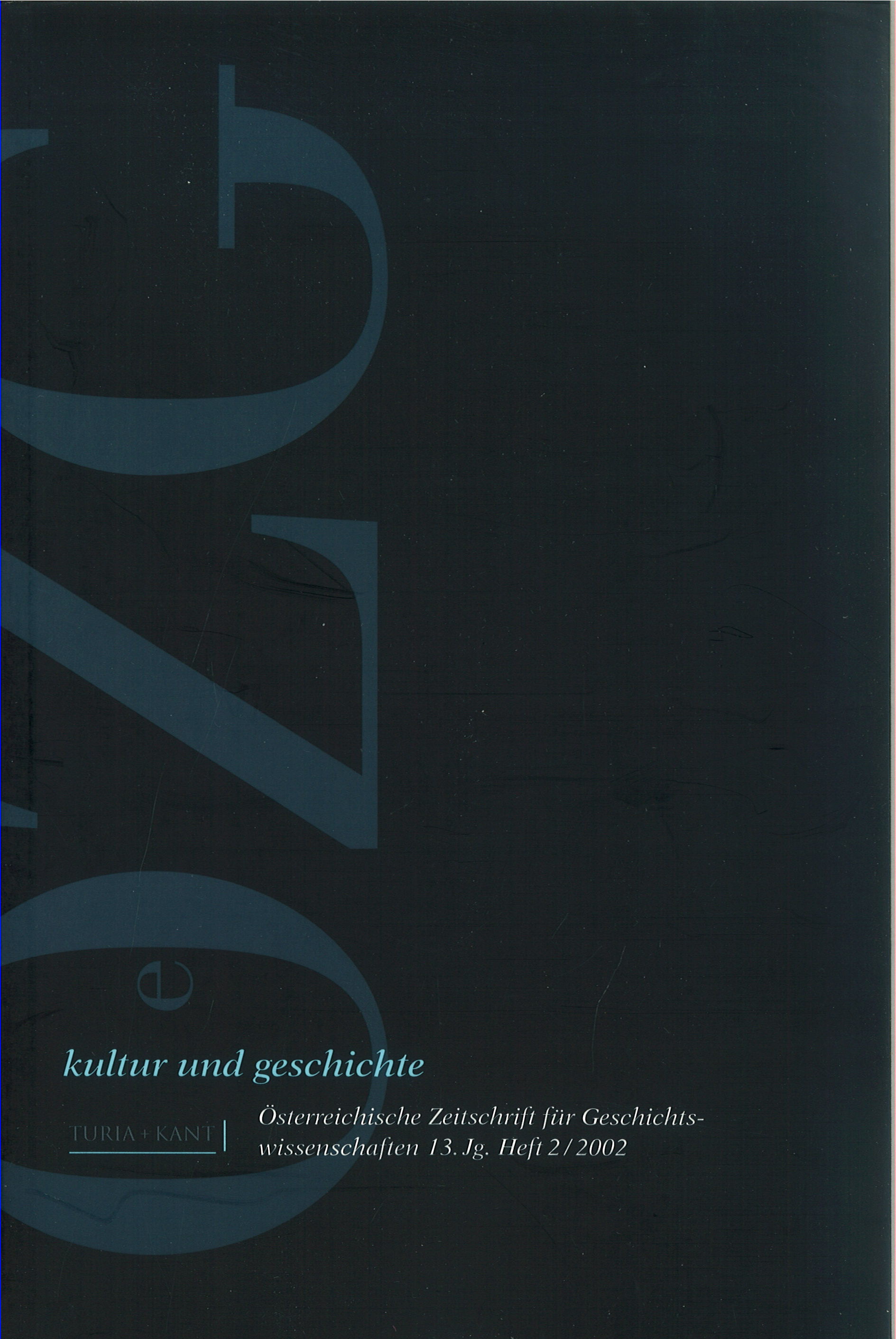Denk-Orte: ein Dorf reflektiert sein Gedächtnis
Gedächtnisgeschichte als reflexive lntervention
DOI:
https://doi.org/10.25365/oezg-2002-13-2-5Abstract
The article summarizes the results of a research project on the social and cultural construction of collective memories in a village community in Lower Austria at the end of the 20th century. The fieldwork combines several methods in order to reconstruct the complex process of 'doing memory': the interprctation of narrative-biographical interviews with villagers; the publication of a commented selection of these life narratives on CD; the interpretation of a group discussion with a hetero- genous sample of the village population on the reception of the published CD. On the one hand the actors affirm ,non-political, imagcs of the past like sociability, nativeness, diligence, and modesty that represent a collective memory of the village. On the other hand they criticize political-ideological images of past periods, especially the Nazi era, that represent collectivc memories of diffenent generations. The latter must be excluded or at least neutralized in order to include the whole village population in the former. However, rigid images of the past are set in motion by the memory discourse that is both a condition and a consequence of the reflexive fieldwork.


